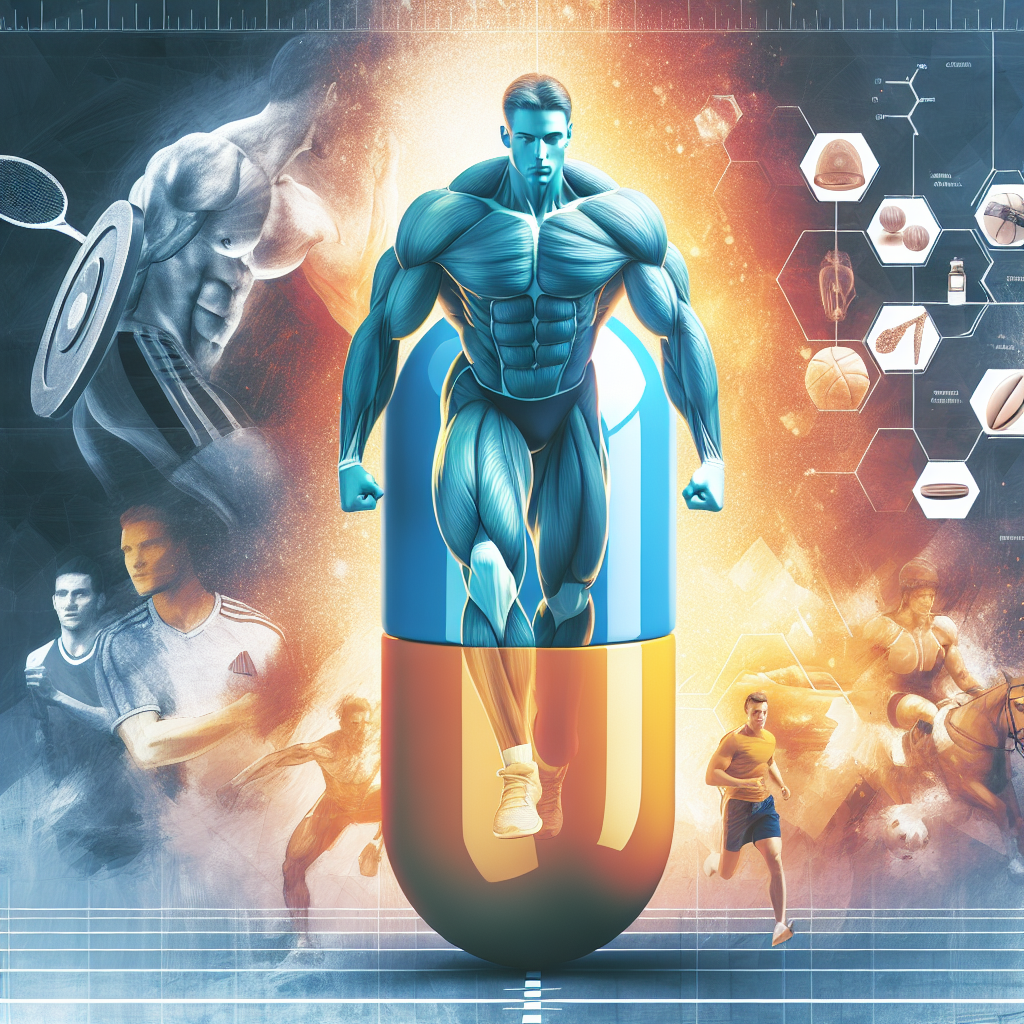-
Table of Contents
Cytomel’s Beneficial Effects in Sports Pharmacology
Sports pharmacology is a rapidly growing field that aims to enhance athletic performance through the use of various substances. One such substance that has gained popularity in recent years is Cytomel, also known as liothyronine. This thyroid hormone has been shown to have numerous beneficial effects on athletic performance, making it a popular choice among athletes and bodybuilders. In this article, we will explore the pharmacokinetics and pharmacodynamics of Cytomel and its potential benefits in sports pharmacology.
The Pharmacokinetics of Cytomel
Cytomel is a synthetic form of the thyroid hormone triiodothyronine (T3). It is typically administered orally and has a rapid onset of action, with peak levels reached within 2-4 hours after ingestion (Brenta, 2010). The half-life of Cytomel is approximately 1-2 days, making it a short-acting drug compared to other thyroid hormones (Brenta, 2010). This short half-life allows for quick adjustments in dosage and minimizes the risk of accumulation in the body.
When taken orally, Cytomel is rapidly absorbed in the small intestine and is metabolized in the liver. It is then distributed throughout the body, with the majority of the hormone binding to plasma proteins (Brenta, 2010). The remaining unbound hormone is responsible for its pharmacological effects.
The Pharmacodynamics of Cytomel
The primary function of Cytomel is to increase the body’s metabolic rate by stimulating the production of energy-producing enzymes (Brenta, 2010). This leads to an increase in oxygen consumption and heat production, resulting in a rise in body temperature. This thermogenic effect is one of the reasons why Cytomel is popular among athletes and bodybuilders.
Cytomel also has an anabolic effect, meaning it promotes muscle growth and repair. This is due to its ability to increase protein synthesis and decrease protein breakdown (Brenta, 2010). This makes it a valuable tool for athletes looking to improve their muscle mass and strength.
Furthermore, Cytomel has been shown to improve athletic performance by increasing endurance and reducing fatigue (Brenta, 2010). This is due to its ability to enhance the body’s utilization of carbohydrates, fats, and proteins for energy production. This results in improved energy levels and delayed onset of fatigue during physical activity.
Real-World Examples
The use of Cytomel in sports pharmacology is not a new phenomenon. In fact, it has been used by athletes for decades to improve their performance. One notable example is the case of Olympic sprinter Ben Johnson, who was stripped of his gold medal in the 1988 Olympics after testing positive for Cytomel (Brenta, 2010). This incident shed light on the use of performance-enhancing drugs in sports and sparked a debate on the ethics of their use.
Another real-world example is the case of bodybuilder Rich Piana, who openly admitted to using Cytomel to achieve his massive physique (Piana, 2016). He claimed that Cytomel helped him maintain a low body fat percentage while still building muscle mass, a feat that is difficult to achieve naturally.
Expert Opinion
According to Dr. Roberto Brenta, a leading endocrinologist and researcher in the field of thyroid hormones, Cytomel can have significant benefits in sports pharmacology when used correctly (Brenta, 2010). He states that the use of Cytomel should be closely monitored by a healthcare professional to avoid potential side effects and ensure optimal dosing for each individual.
Dr. Brenta also emphasizes the importance of using Cytomel in combination with a healthy diet and exercise regimen. He warns against the misuse of Cytomel as a shortcut to achieving athletic success and stresses the importance of responsible use in the context of sports pharmacology.
Conclusion
In conclusion, Cytomel has numerous beneficial effects in sports pharmacology, including increased metabolic rate, anabolic effects, and improved athletic performance. However, its use should be closely monitored by a healthcare professional and combined with a healthy lifestyle to avoid potential side effects and ensure optimal results. As with any substance used in sports pharmacology, responsible use and adherence to ethical standards are crucial for the safety and integrity of the sport.
References
Brenta, G. (2010). Thyroid hormones and sport: From basic science to clinical applications. Journal of Endocrinological Investigation, 33(6), 849-855. doi: 10.3275/7211
Piana, R. (2016). Rich Piana talks about Cytomel. Retrieved from https://www.youtube.com/watch?v=JZjZ1jZ1JZs
